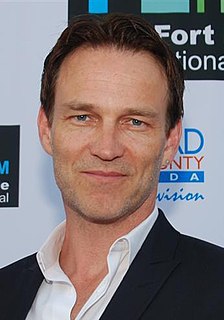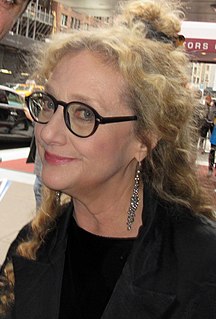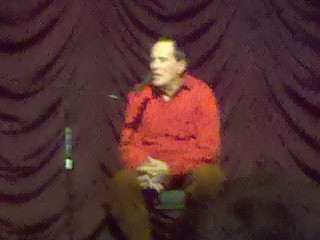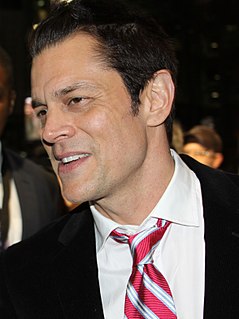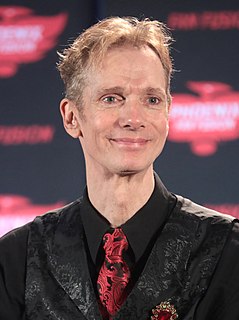A Quote by Stephen Moyer
Film and theater are about misdirection and making the audience see something. I find it interesting. One of the things we do in 'True Blood' is shoot all of our stunts in camera. Instead of doing some kind of visual effect, we try to make it happen.
Related Quotes
Making photos is helpful of course to master the craft. To get comfortable with the camera. Learn what a camera can do and how to use the camera successfully. Doing exercises for example if you try to find out things that the camera can do that the eye cannot do. So that you have a tool that will do what you need to be done. But then once you have mastered the craft the most important thing is to determine why you want to shoot pictures and what you want to shoot pictures of. That's where the thematic issue comes to life.
The violence you witness is Denzel doing it and we're taking some visual effects and doing some things and you see something happen it's happening in front of you as opposed to cutting away and doing a bunch of tricks. It's in front of you. So it's hard not to make it a hard "R" if you see a guy get punched and teeth wind up in someone's knuckles.
I don't think all films should necessarily look like they do on digital video. I think it cheats the audience, at some point. If you try to make an epic and you shoot it digitally, that doesn't make much sense. I think there's a certain kind of film that could be a "digital film." But it shouldn't be interchangeable with other films. It should be something more than just a capture medium. It should be a different form altogether, something new.
I try to remember dreams, and occasionally I'll make a note or two in a notebook if it's something extra interesting. They do mean quite a lot to me, and they don't happen all that often. In other words, I don't have some kind of loud, Technicolor dream every night. But a few times a month, I'll have a rather interesting dream. They're mostly visual - oddly enough, I don't have much dialogue in my dreams. They just don't speak.
So this is reality, this forgiveness, this reconciliation, is true for everybody. Paul insisted that when Jesus died on the cross, he was reconciling "all things, in heaven and on earth, to God." All things, everywhere. ...This reality then isn't something we make come true about ourselves by doing something. It is already true. Our choice is to live in this new reality or cling to a reality of our own making.
As an artist, you are always striving toward an ultimate achievement but never seem to reach it. You shoot a film, and the result could have always been better. You try again, and fail once more. In some ways I find it enjoyable. You never lose sight of your goal. I don’t do my job to make money or to break box office records, I simply try things out. What would happen if I were to achieve perfection at some point? What would I do then?
For me, as a film goer, I like nothing more than to sit in the cinema, have the lights go down and not know what I'm about to see or unfold on-screen. Every time we go to make a film, we do everything we can to try to systematise things so we're able to make the film in private, so that when it's finished it's up to the audience to make of it what they will.
